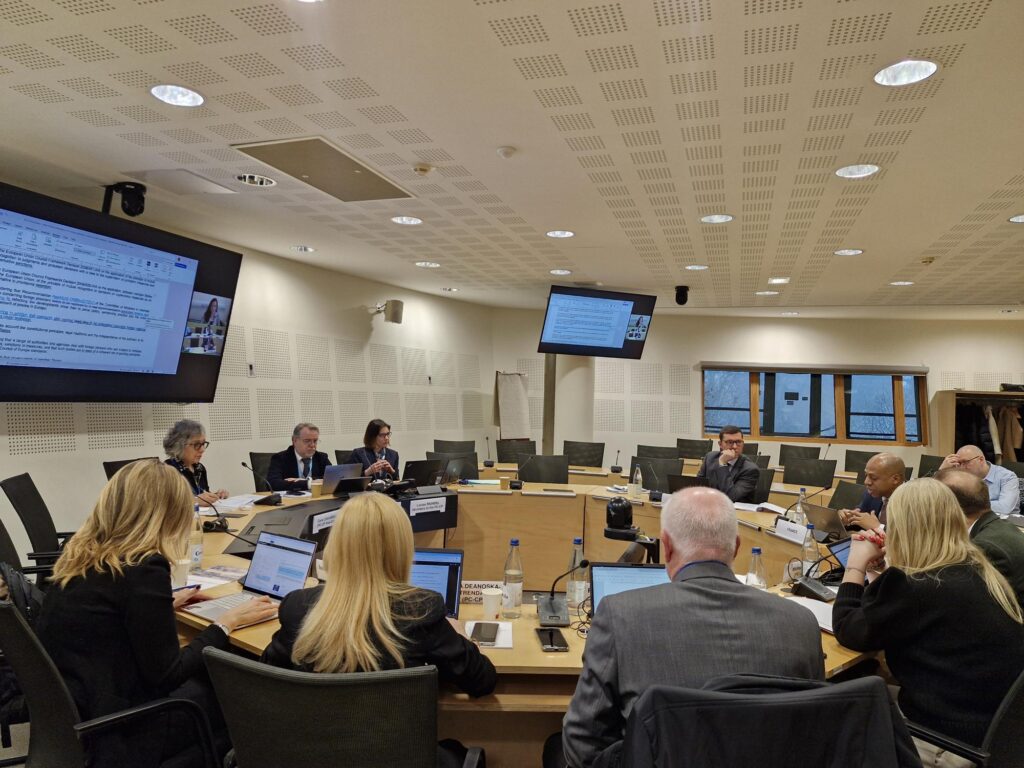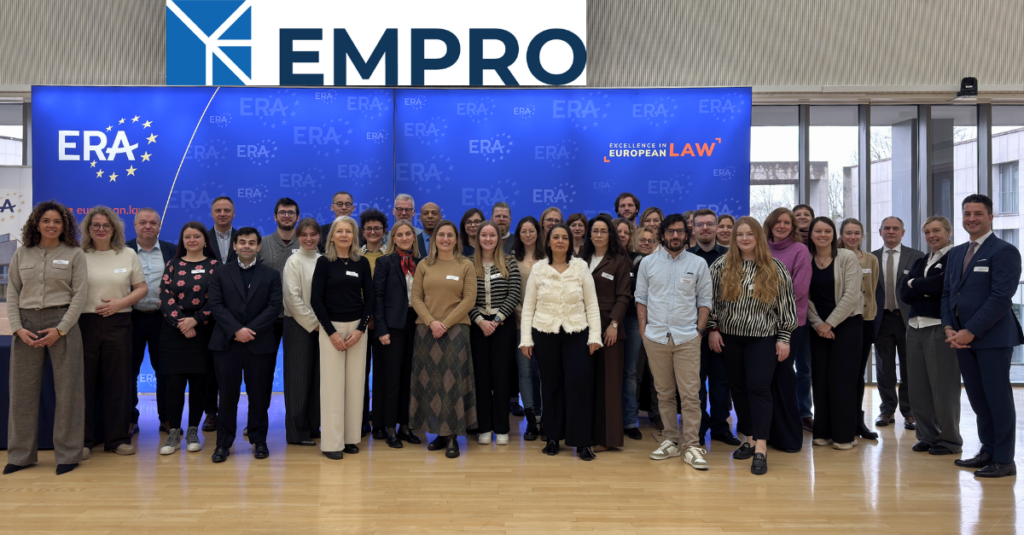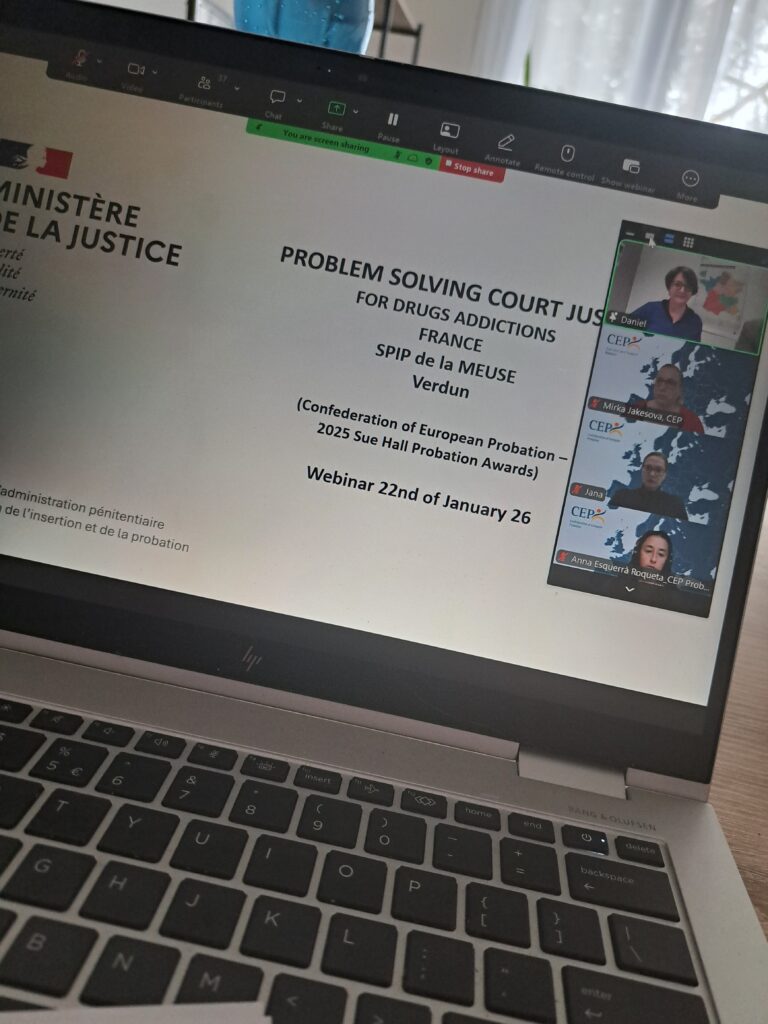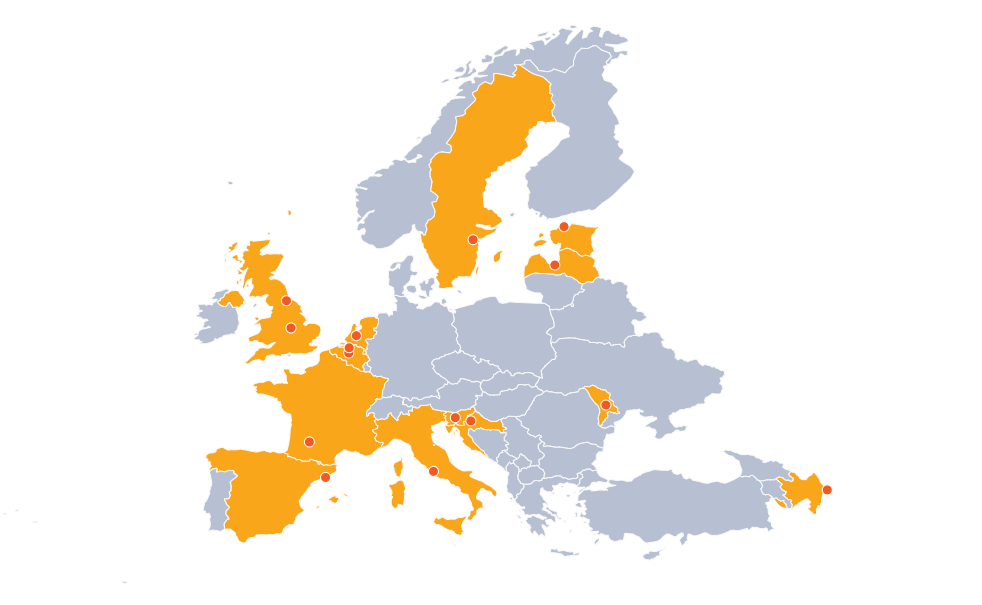Previous Article
News
Romania helps Armenia in developing probation to European standards
During the 21st and 25th of October 2013, the Romanian Probation Department hosted the study visit of a delegation of five judicial system representatives from Armenia, event which was possible with the support of Council of Europe, within the framework of the project Reducing the use of custodial sentences in line with European standards, financed thanks to the generous voluntary contribution of Norway, through the Norwegian Ministry of Foreign Affairs.
 The Project aims at bringing the Armenian prison system closer to the European Prison Rules and other European Probation Rules and other Recommendations of the Council of Europe and the standards of the European Committee for the Prevention of Torture and Inhuman or Degrading Treatment or Punishment (CPT), the case law of the European Court of Human Rights (ECtHR) and best European practices.
The Project aims at bringing the Armenian prison system closer to the European Prison Rules and other European Probation Rules and other Recommendations of the Council of Europe and the standards of the European Committee for the Prevention of Torture and Inhuman or Degrading Treatment or Punishment (CPT), the case law of the European Court of Human Rights (ECtHR) and best European practices.
The Project focuses on raising awareness on the effectiveness of alternative sanctions and measures, on the need to extend the use of such sentences and on the importance of establishing a mechanism for supervision of the implementation of non-custodial sentences.
The Armenian authorities’ representatives expressed interest in terms of Romanian probation system, in particularly regarding the establishment of the probation services, the developing stages and good practices in the field, the legal and institutional framework governing the probation activities and in this respect Probation Department contributed with its own expertise.
The delegation was led by Mr. Hayk Khemchyan, Senior Project Officer of Council of Europe and was composed by the Head of Division for Penitentiary Legal Reforms, the Head of the Division for Implementation of Alternative Sanctions, Criminal – Executive Department, a judge from Court of General Jurisdiction, a prosecutor from General Prosecutor’s Office and a chairman from Civil Society Institute.
During the visit, the delegates participated to working meetings and discussions with representatives of probation system, both from central and local level, in order to get acquainted with legal regulations and practice on probation. The debates were related not only to organizing and functioning of Romanian probation system in the present, but also to the new challenges brought by the New Criminal Code and by the New Probation Law for the Romanian probation services. An important issue addressed during the meetings was the involvement and the support of the community institutions and the NGO’s into the rehabilitation of the offenders.
As well, the members of the delegation had the opportunity to meet judiciary representatives (judges, prosecutors, legal advisers, probation counsellors), NGO’s and prison services representatives, and to visit National Prison Administration, The Romanian Group for the Defence of Human Rights, a probation service and two courts. Within these meetings, the discussions were focused on the cooperation between probation services, judiciary institutions and other stakeholders involved in the social reintegration of offenders.
In such circumstances, the delegates acquainted the probation activities and obtained a complete view of the Romanian probation system.

Related News
Keep up to date with the latest developments, stories, and updates on probation from across Europe and beyond. Find relevant news and insights shaping the field today.
New

CEP Board
Interview with new CEP board member Line Elisabeth Wilberg
11/02/2026
During the General Assembly in Austria, a new CEP Board got elected for the upcoming three years. In the coming weeks we will publish interviews with all newly-elected board members where they will share information on their professional background, how they would like to contribute, what challenges lie ahead and many more.
Enjoy reading!
New

Probation in Europe
CEP at 40th PC-CP Working Group Meeting
09/02/2026
CEP actively participated in the meeting of the Council of Penological Co-operation (PC-CP) of the Council of Europe. Through its involvement, the organisation contributes meaningfully to the work of the PC-CP by representing the voices and professional experience of probation practitioners across member countries and jurisdictions. CEP Vice-President Ms Danijela Mrhar Prelić is a member of the PC-CP Working Group and actively participates in all meetings.
New

Probation in Europe
CEP at the EMPRO Symposium hosted by ERA
04/02/2026
CEP actively contributed to the EMPRO Knowledge Exchange Symposium hosted by the Academy of European Law (ERA) in Trier on 28–29 January, bringing together practitioners, policymakers, and researchers to reflect on the implementation of EU Framework Decisions in probation and supervision.
New

Alternatives to pre-trial detention, Community Sanctions and Measures, Framework Decisions, Technology
Future of Criminal Justice: CEP’s Contribution to Key 2025 Dialogues
27/01/2026
Throughout 2025, CEP and its representatives actively participated in the online Technical meetings ahead of the HLF as well as the High Level Forum on Future of Criminal Justice taking place on 4-5 March 2025, 20-21 May 2025 and 1-2 October 2025 in Brussels, Belgium.
Recap

Alternatives to pre-trial detention
Recap: Webinar on Alternatives to Detention 2026
26/01/2026
On Thursday 22 January, CEP hosted the first webinar of 2026 on the topic of Alternatives to Detention. The session led by Ms. Marina Pajoni from the French Prison and Probation Service titled „Problem Solving Justice in Pracitce: The Meuse Probation Service´s Approach to Drug Addiction“ introduced an innovative programme developed by the Meuse Probation Service in close cooperation with the French Ministry of Justice.
New

Education and Training
CEP launches an interactive European map of probation education and training institution contacts
22/01/2026
The CEP is pleased to inform its members that a new dedicated section has been developed on the CEP website featuring an interactive map of Europe.
Subscribe to our bi-monthly email newsletter!
"*" indicates required fields
- Keep up to date with important probation developments and insights.

